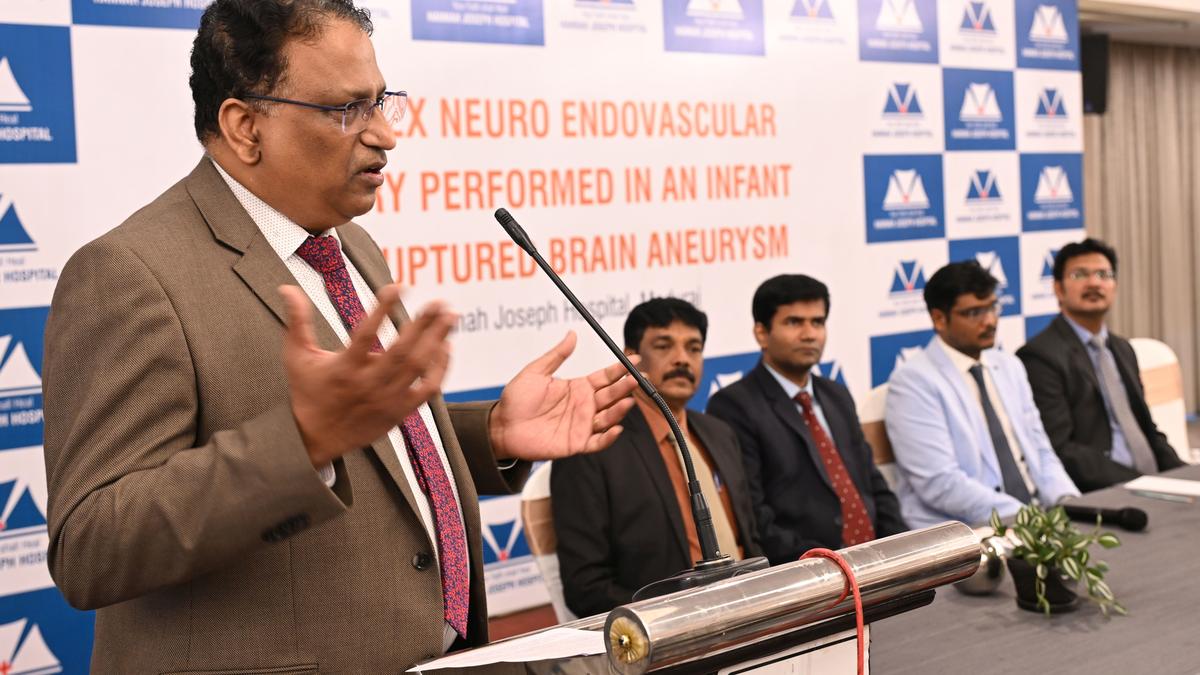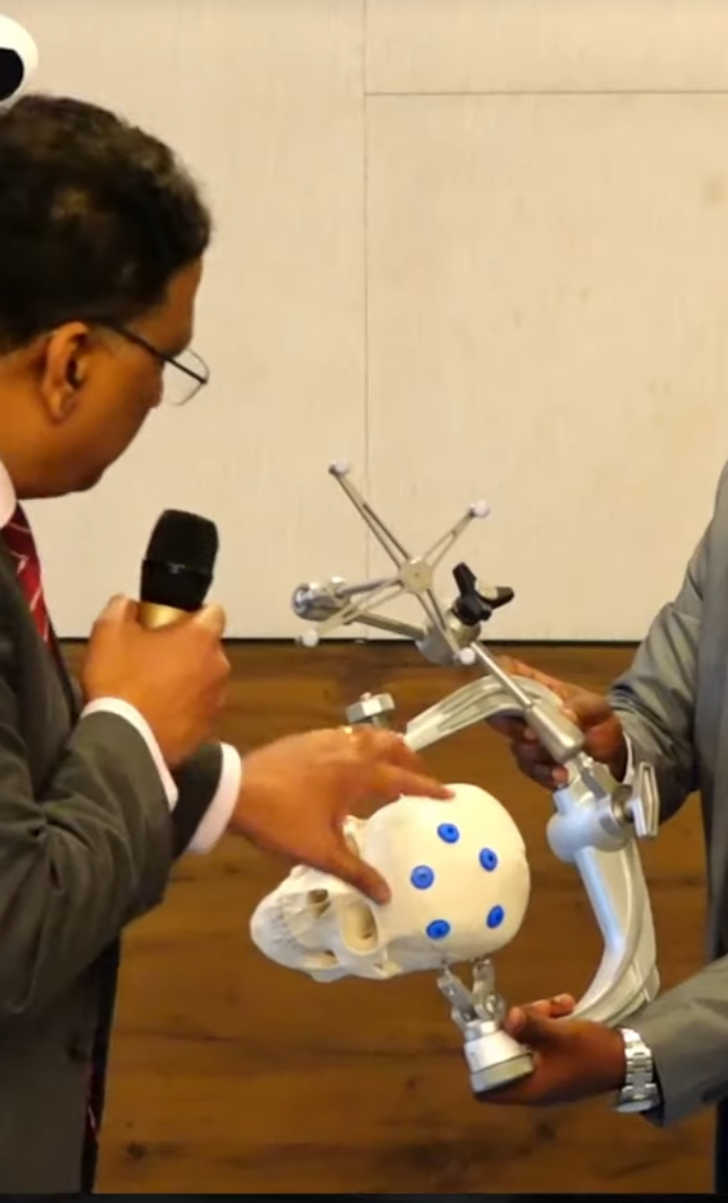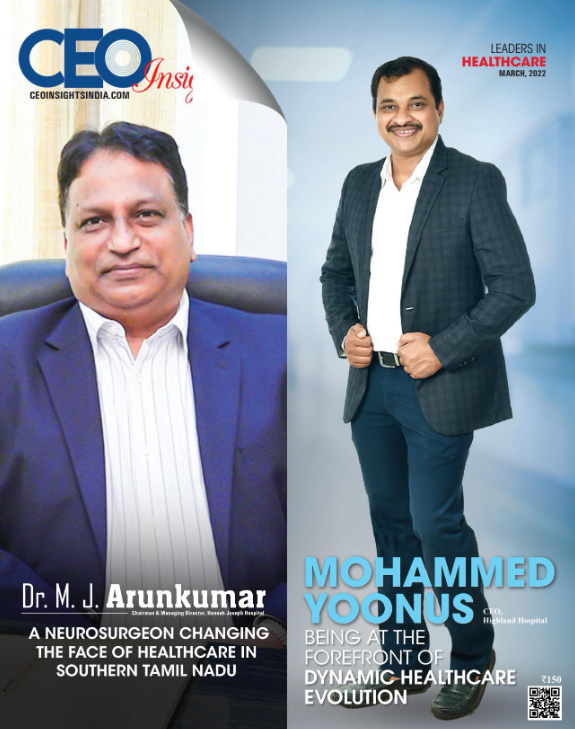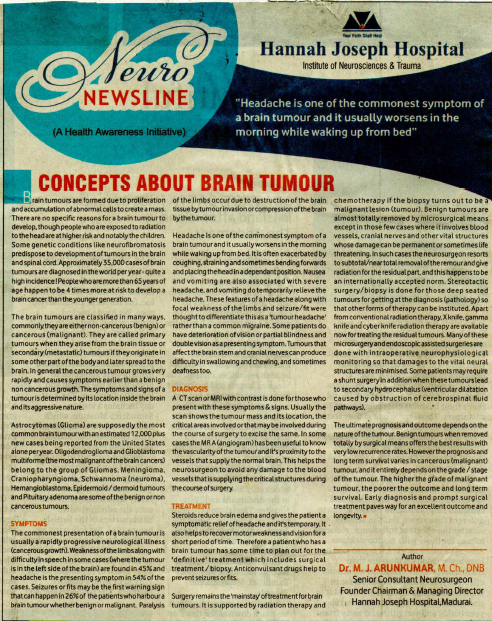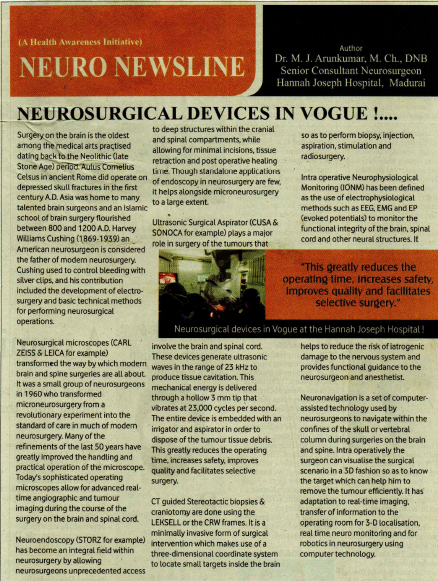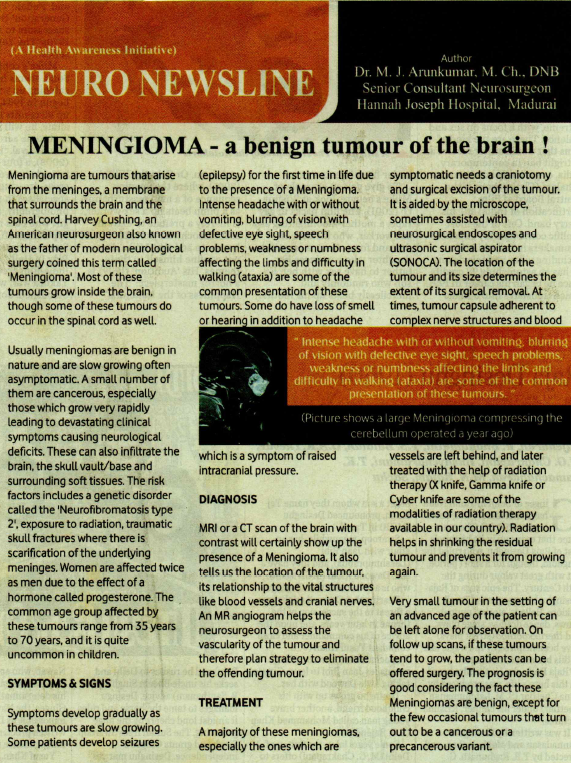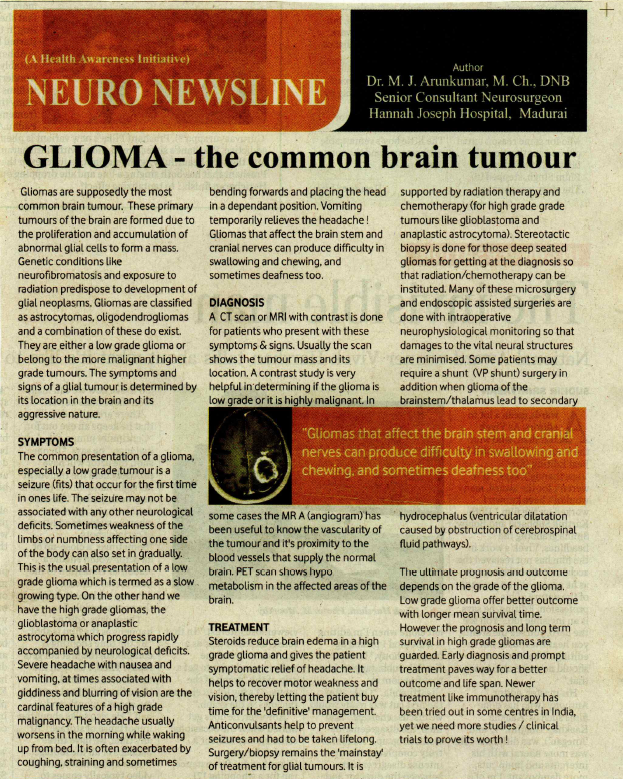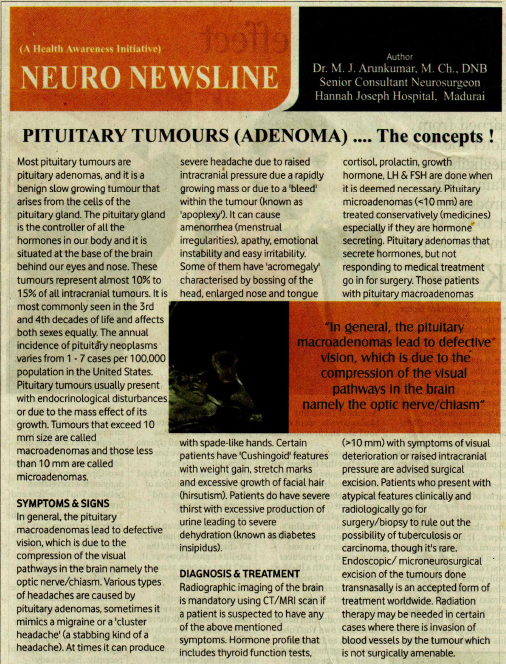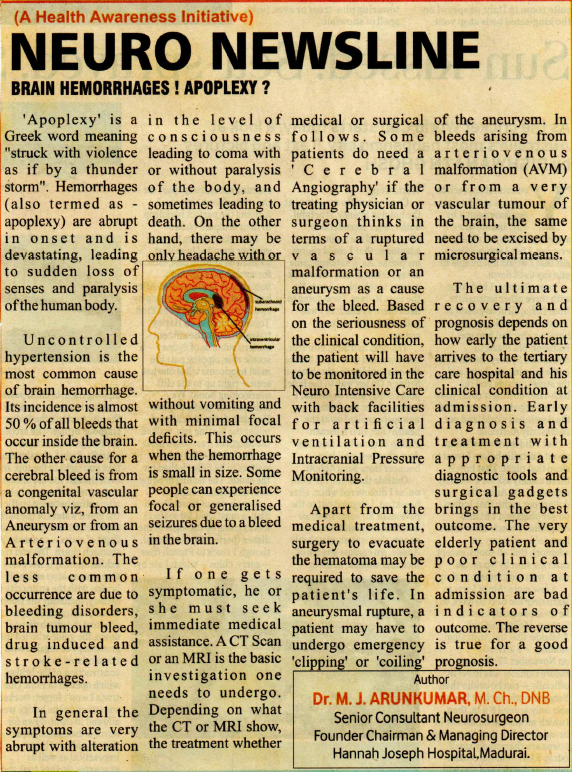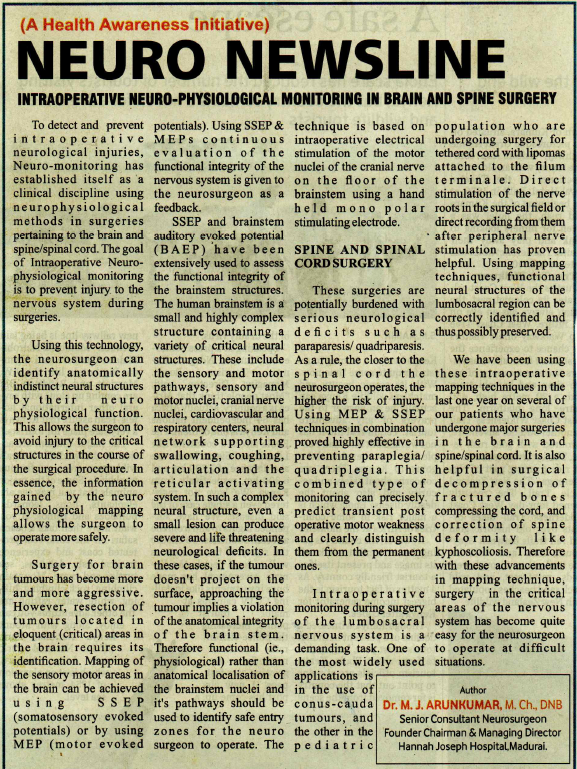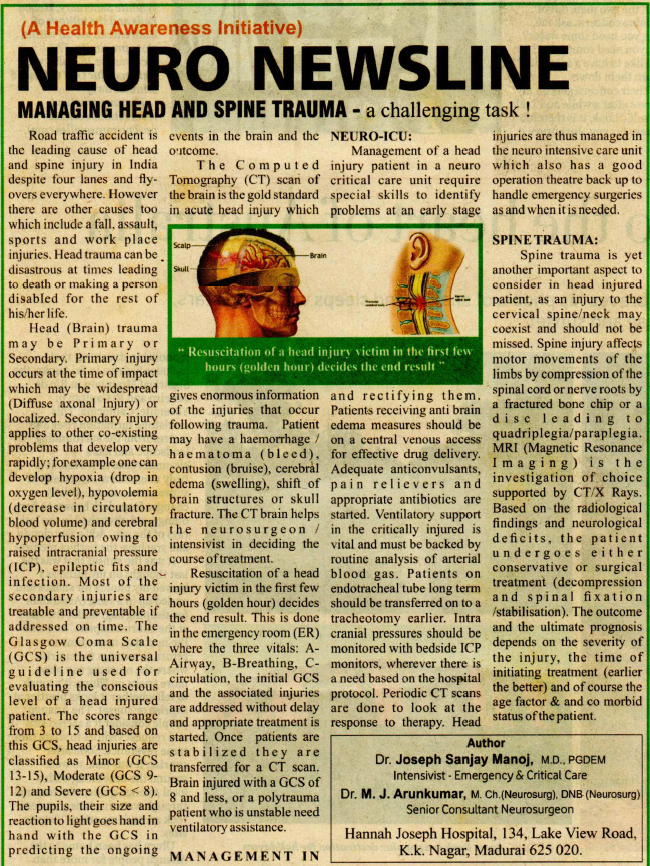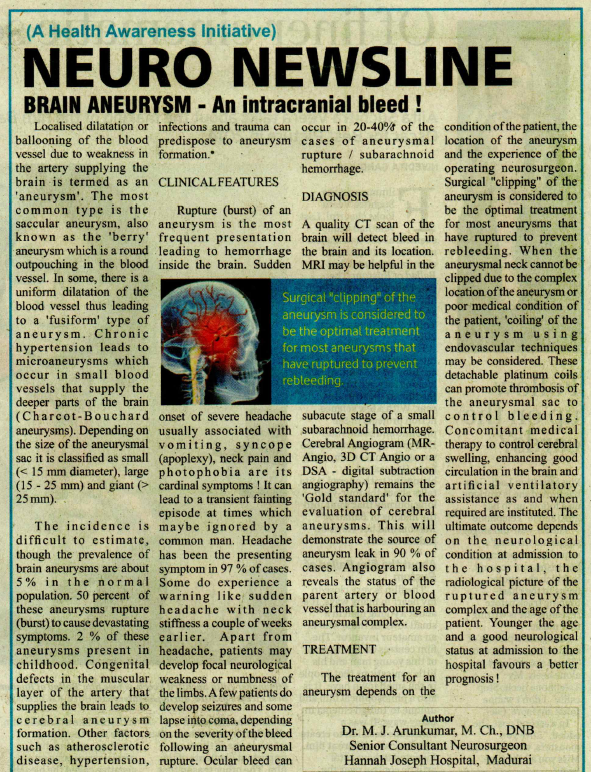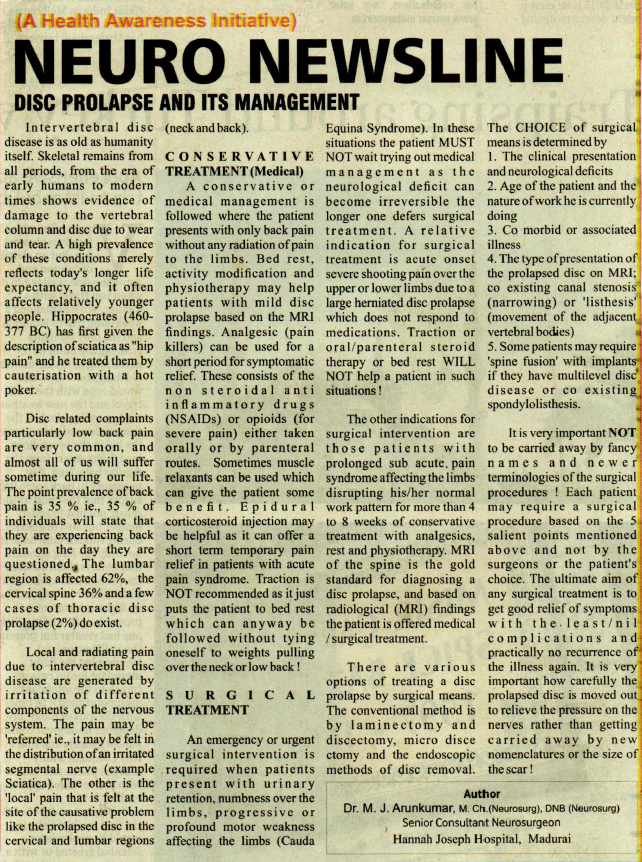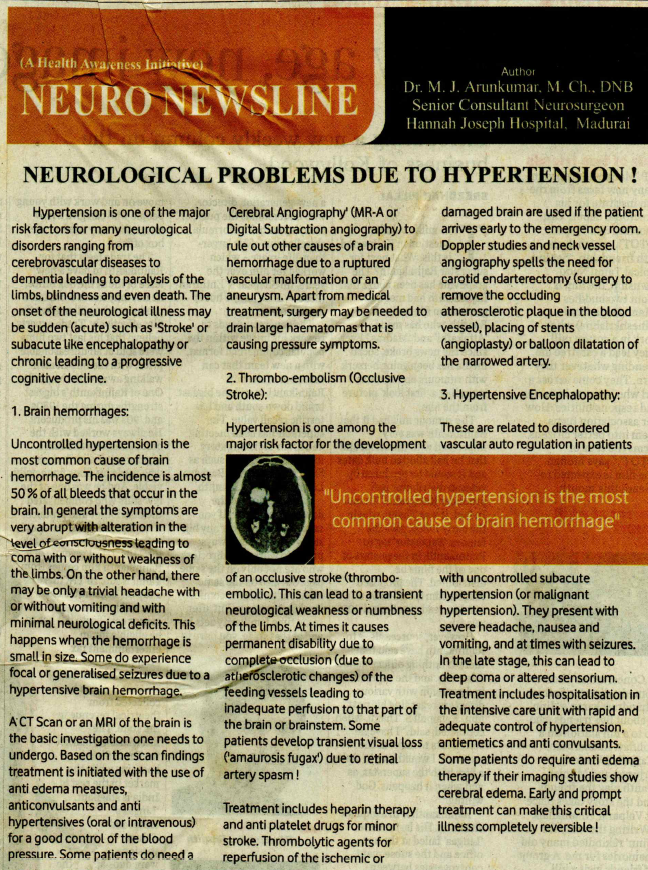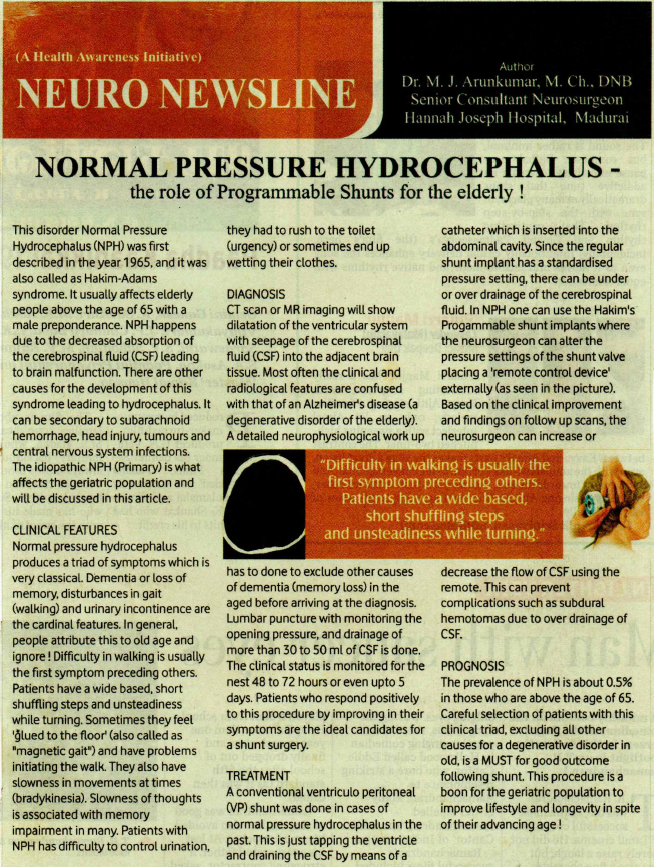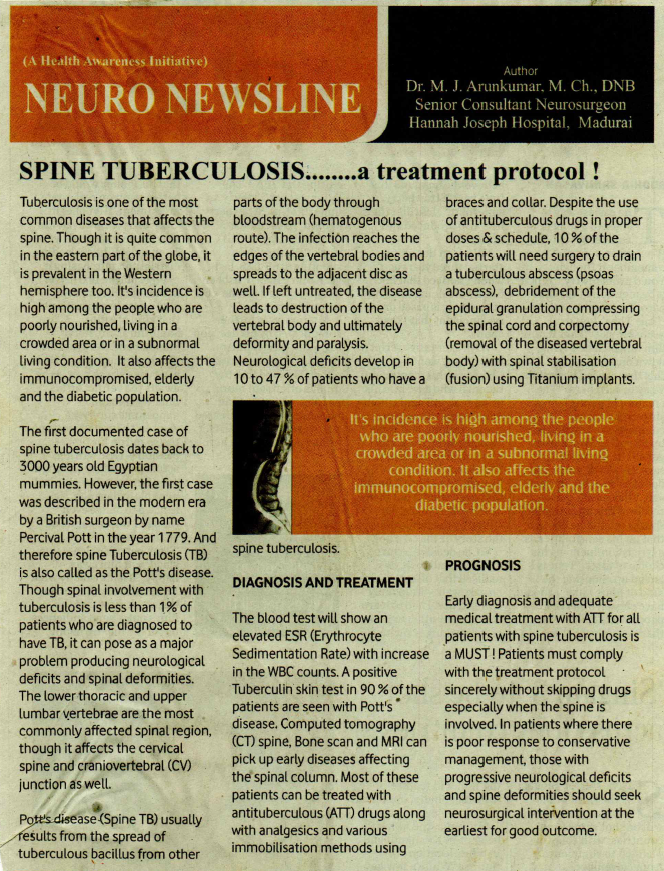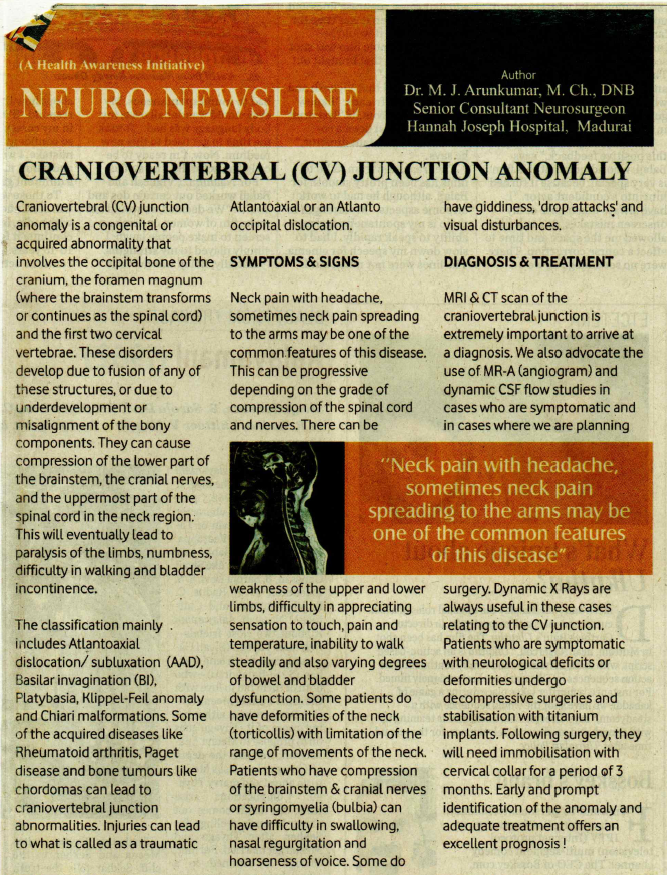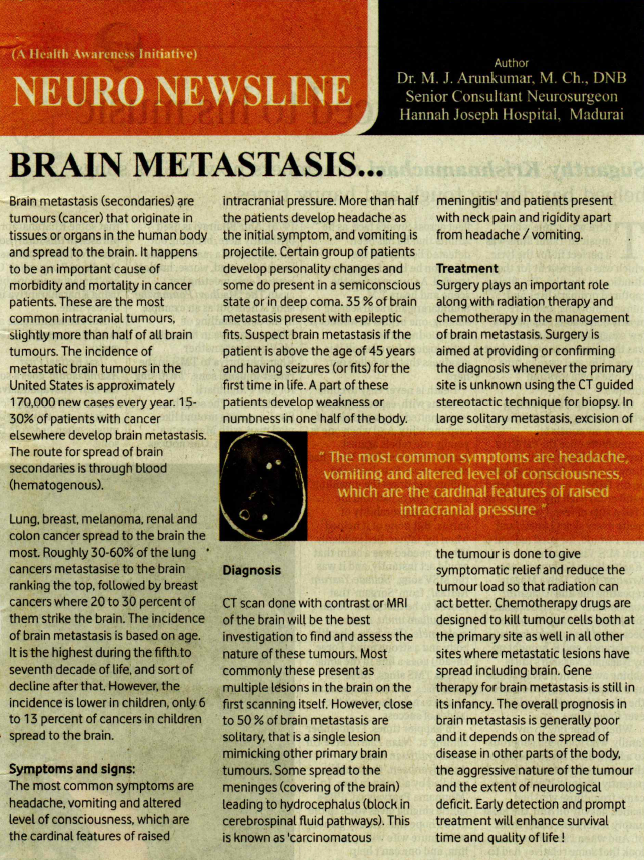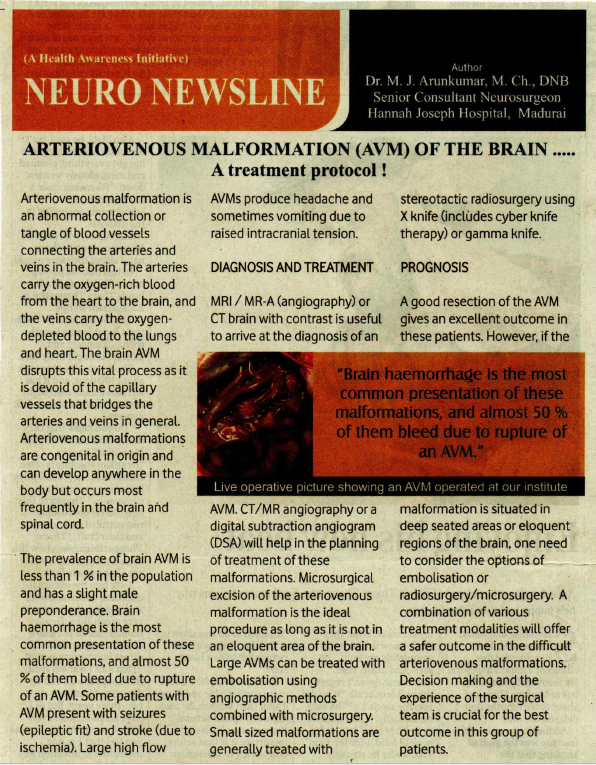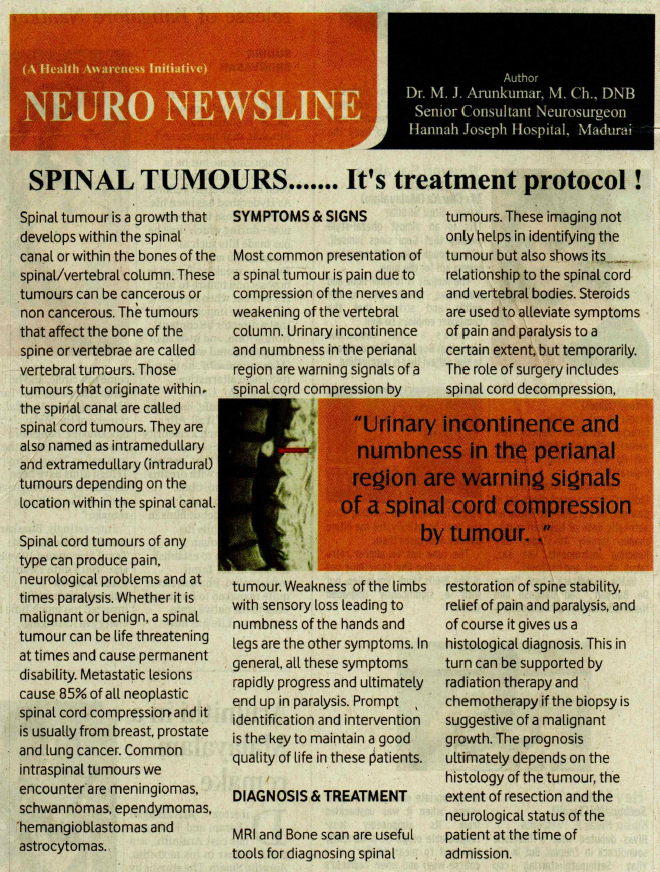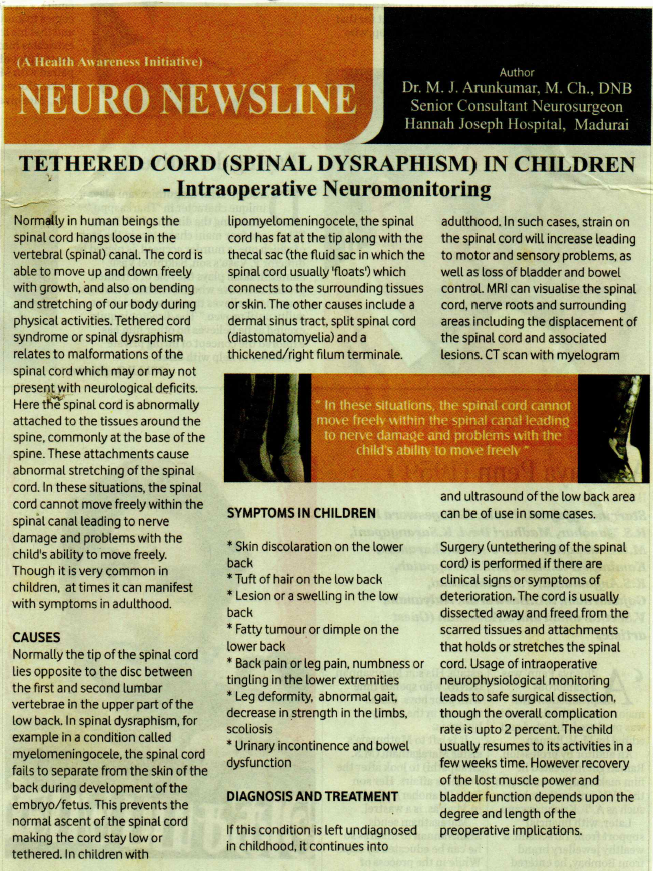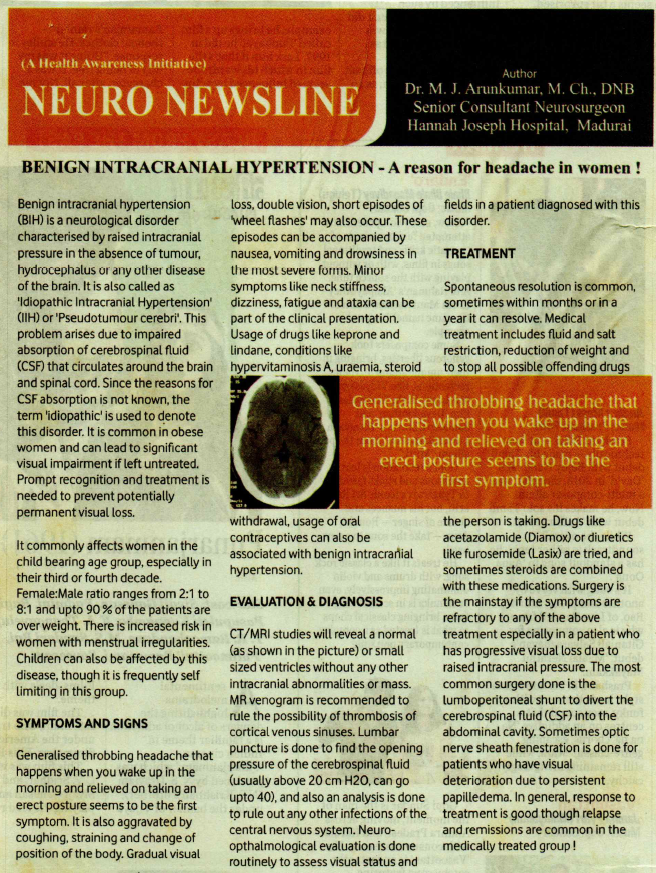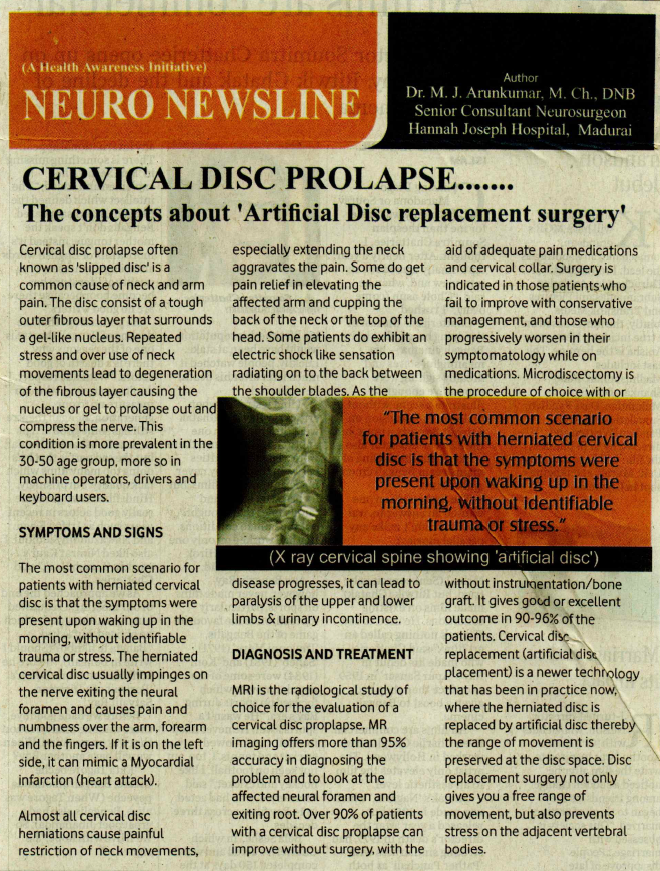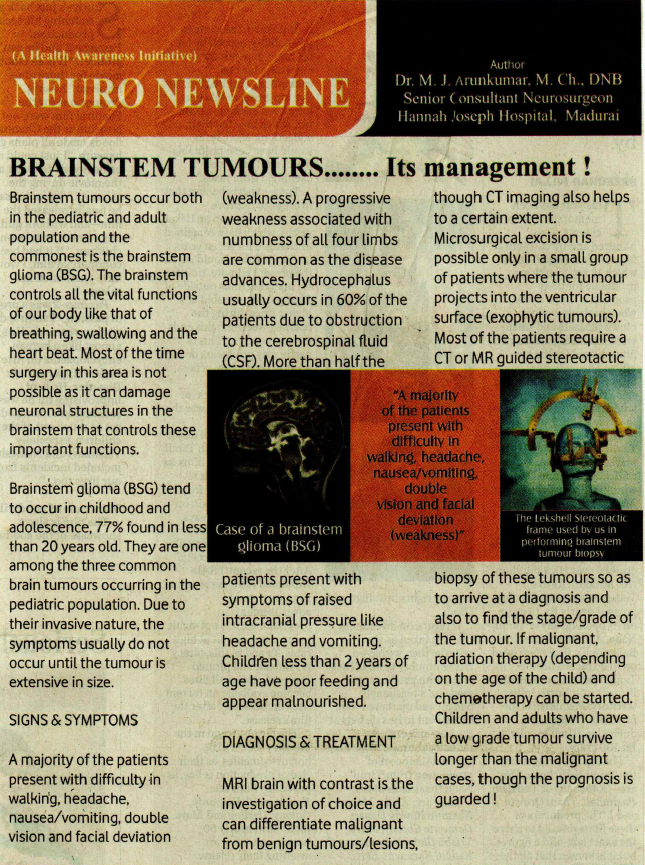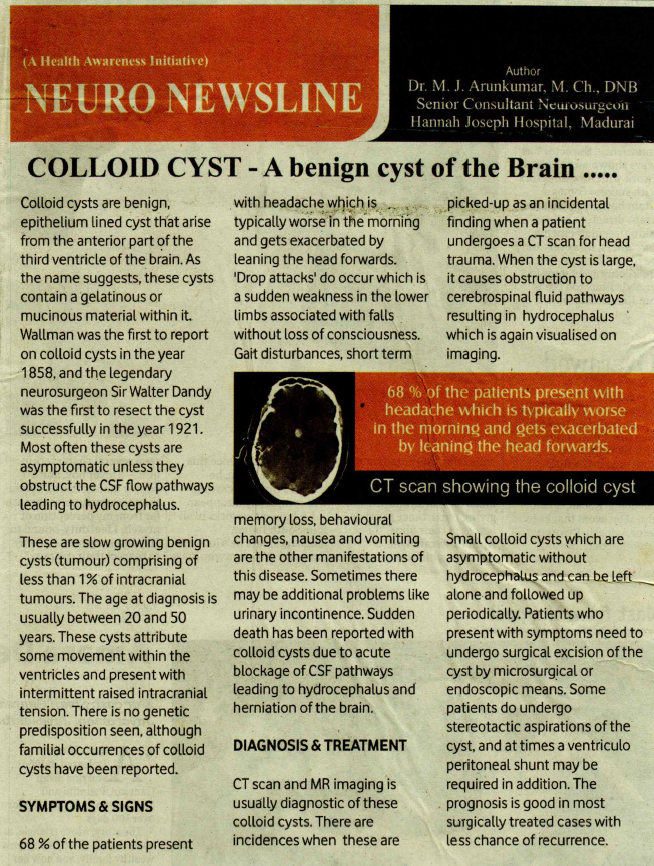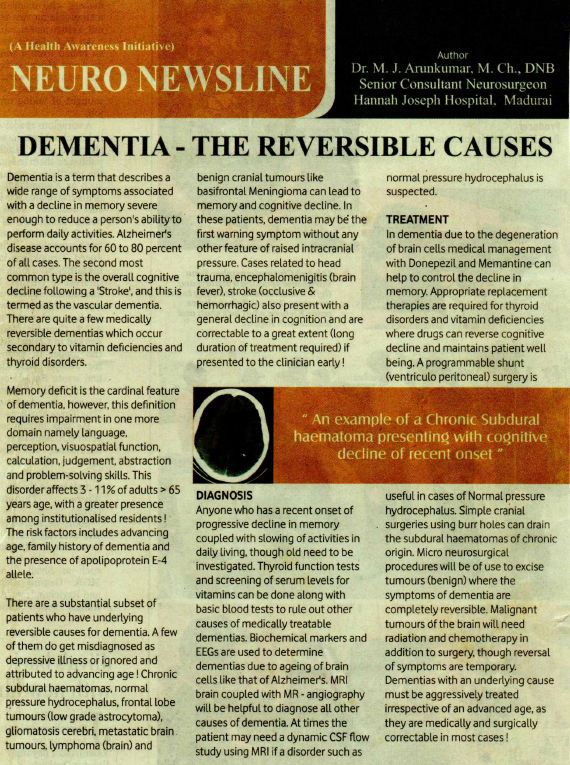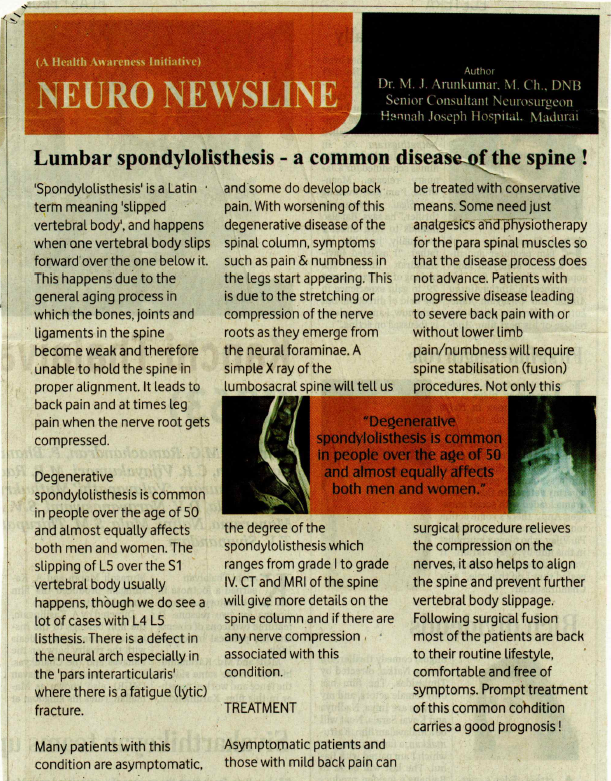Fortune India – September 2025
Trusted Brand and Leaders 2025
"The dedication, intrinsic to patient care and the delivery of top-notch neurosurgical treatments and services at Hannah Joseph Hospital, Madurai, remains a key driver of its leadership in the field of Neurosurgery and Trauma." Read More…
Outlook India – August 2025
Best Doctors South 2025
"A trailblazer, Dr Arunkumar pioneered Brain & Spine Navigation and Fluorescence/ICG guidance for the treatment of Brain Tumors& Aneurysm in South Tamilnadu for over a decade. He brought in the Artificial Intelligence" Read More…
Outlook India – June 2025
Hannah Joseph Hospital has been listed among the top three Neuro Surgery Hospitals Accross India
"In the heart of Madurai, far from India's traditional medical hubs, Hannah Joseph Hospital is redefining neurosurgical excellence. Founded in 2008 by Dr MJ Arunkumar, an accomplished neurosurgeon trained at Christian Medical College (CMC) Vellore and abroad, the hospital was born from a vision to eliminate the need for patients in South India to travel to metropolitan cities for advanced neurological care. Today, it stands as one of the most technologically advanced neuroscience centres in the region… " Read More…
Times Business Awards – March 2025
Hannah Joseph Hospital has received the Times Awards 2025 for Excellence in Neurosurgery & Interventional Neuroradiology in the Madurai & Trichy regions.
This recognition belongs to our dedicated team and the trust of our patients. We remain committed to delivering the best in brain and spine care. View Event
The Hindu – February 2025
Life-saving procedure performed on infant with ruptured brain aneurysm
Doctors at Hannah Joseph Hospital in Madurai have successfully performed a life-saving neuroendovascular procedure on a nine-month-old baby boy, diagnosed with a complex brain aneurysmal rupture, using balloon-assisted coils in the brain. The infant weighing 7.5 kg was brought to the hospital after the child experienced multiple episodes of uncontrolled seizures, decline in consciousness lapsing into coma with no visible limb movements… Read More
News 18 Tamil – January 2025
Hannah Joseph Hospital was honored for *Excellence in Neurosurgery* at the News18 Tamil Nadu Healthcare Awards – Maruthuva Viruthugal 2024.
Mr Daniel Fenn, our General Manager and CFO, received the award on behalf of Dr MJ Arunkumar – Founder Chairman & Managing Director of Hannah Joseph Hospital Group from the Honorable Health Minister of Tamil Nadu, Ma. Subramanian. View Event
Prime Insights – January 2025
Dr. M.J. Arunkumar: A Seasoned Healthpreneur Leading a New Era of Neurosurgery with Compassion and Precision
"What began as a commitment to my community has transformed into a lifelong mission."
Our passion for showcasing this best-in-class story of entrepreneurship, combined with innovation and purpose, has inspired us to feature Hannah Joseph Hospital at the forefront of this month's edition. The story of Hannah Joseph Hospital began in the heart of the mesmerizing city of Madurai, Tamil Nadu, where the vision of providing exceptional neurosurgery services to Southern Tamil Nadu started gaining momentum… Read More






